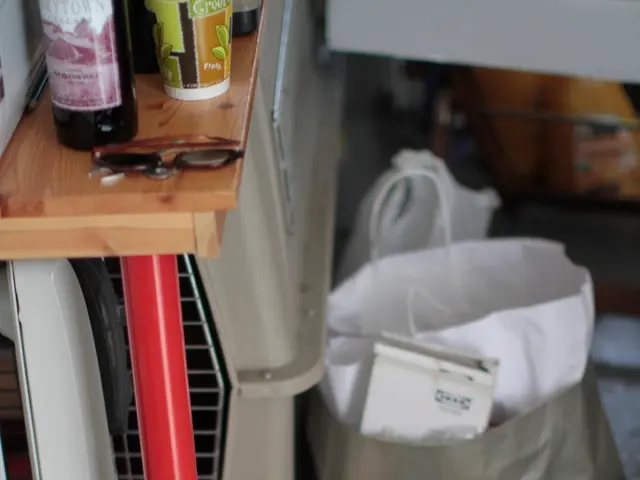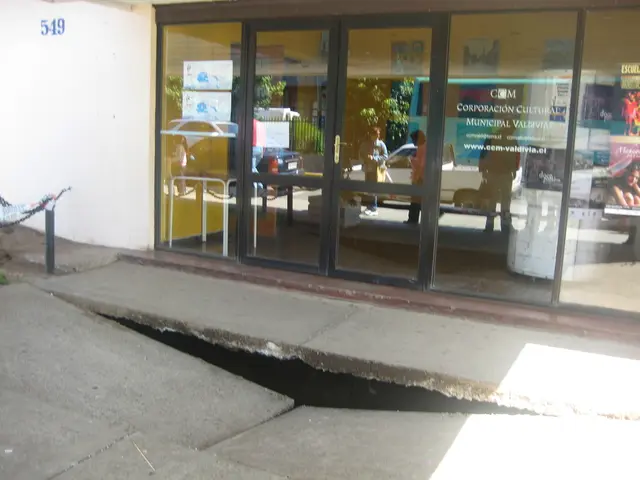Sizzling Summer Slump: Left Wants to Revolutionize Work Breaks
Progressive forces push for broader employment opportunities
Ready to beat the heat? The radical Left party proposes a dramatic overhaul of labor laws to safeguard workers from extreme summer temperatures. Picture this: when the mercury hits 26 degrees in your office or on the street, you'll get an extra ten minutes of break time. Sound good? The Greens concur, but unions and the AfD aren't sold.
Left party co-chair Jan van Aken is pushing for a sort of emergency heat break at work. According to a recent policy paper, daily working hours could shrink by a quarter when workplace temperatures reach 26 degrees Celsius, and by half when the mercury hits 30 degrees. Van Aken argues that laboring under scorching conditions can take a toll on workers' health, and concentrating and being productive becomes nearly impossible above 30 degrees.
Political Uproar over Hot Days at Work
Van Aken demands immediate action by the federal government by July 2025. His proposal includes tightening up the Workplace Ordinance, requiring additional breaks beyond 26 degrees, offering adequate water and sun protection, encouraging remote work, and reducing full-time hours for work above 26 degrees. For temperatures above 30 degrees, he's asking for reduced hours and frequent breaks, along with the provision of fans at the workplace.
Unions and the AfD aren't having it. The unions think existing regulations suffice, and dismiss the Left's initiative as unrealistic and cost-prohibitive, particularly for sectors like craftsmanship, caretaking, and the public sector. AfD, for its part, believes employers, rather than the government, should be trusted to take care of their workers' needs. Meanwhile, the Greens advocate for adaptable working hour regulations, acknowledging that the strain from working outside in the heat can be substantial, increasing health risks and causing skin cancer.
Heat Protection Provisions: Fact or Fiction?
Currently, a workplace with a temperature of up to 26 degrees Celsius is considered tolerable, according to technical regulations. If temperatures exceed this, employers are encouraged to take measures like providing fans, reducing heat sources, or offering flexible work hours. However, these measures aren't universally applicable to all sectors. For outdoor workers, employers are expected to implement protections like sun shields, drinks, and relaxed dress codes, but no formal federal law mandates reduced working hours or frequent breaks at specific temperatures.
So, as Germany grapples with hot weather and its accompanying health threats, the debates around heat protection provisions in the workplace continue to heat up. As more researchers and advocates push for evidenced-based protective measures and public awareness initiatives, we can only wait and see if die Linke's call for legal changes comes to fruition.
Sources: ntv.de, mau/AFP, openpr.com, die-linke.de, bund.net
- Health
- Climate Crisis
- Jan van Aken
- Politics
- Labor Law
- The Left party's proposal for an emergency heat break at work aims to address the impact of extreme summer temperatures on workers' health, as argued by co-chair Jan van Aken.
- The Greens support adaptable working hour regulations to account for the strain from working outside in the heat, which they argue can increase health risks and cause skin cancer.
- current regulations only encourage employers to provide measures like fans or flexible work hours when temperatures exceed 26 degrees Celsius, but there is no federal law mandating reduced working hours or frequent breaks at specific temperatures.
- The AfD believes employers, rather than the government, should be trusted to take care of their workers' needs, while unions question the practicality and cost-effectiveness of the Left's proposal, particularly for sectors like craftsmanship, caretaking, and the public sector.








